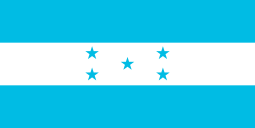Honduras | History, Capital, Language, Flag, Facts & Geography of Honduras
History of Honduras:
The land of Honduras was inhabited by Native American tribes. 250 AD to 900 AD was the height of the Maya civilization. It had the most advanced and powerful indigenous peoples, but their power was already waning by the time the Europeans arrived. The Lencas then attempted an organized resistance against the Spanish conquistadors, but were ultimately unsuccessful.
In 1502, Christopher Columbus discovered Honduras for the first time and claimed Spanish territory. Explorers then arrived and eventually Hernán Cortés established a government in the city of Trujillo.
Get Free Counseling
In 1821 Honduras became an independent country. It was briefly part of the Mexican Empire, then part of the United States of Central America before becoming an independent state again.
In 1998, Hurricane His Mitch wreaked havoc across the United States. The disaster killed more than 5,000 people and devastated Honduras.
Information about Honduras:
| Capital | Tegucigalpa |
| Population | 10,615,859 (Source: 2023 worldometer) |
| Major Cities | TEGUCIGALPA (capital), San Pedro Sula, Choloma |
| Borders | El Salvador, Guatemala, and Nicaragua |
| Gross Domestic Product (GDP) | $31,717,700,115 (2022 worldometer) |
Flag of Honduras:
Honduras Economy Key Industries:
Honduras Major Industries: sugar, coffee, textiles, clothing, wood products
Honduras Agricultural Products: bananas, coffee, citrus; beef; timber; shrimp
Honduras Natural Resources: timber, gold, silver, copper, lead, zinc, iron ore, antimony, coal, fish, hydropower
Honduras Major Exports: coffee, shrimp, bananas, gold, palm oil, fruit, lobster, lumber
Honduras Major Imports: machinery and transport equipment, industrial raw materials, chemical products, fuels, foodstuffs (2000)
The Geography of Honduras:
Total Size of Honduras: 112,492 km² (source: 2022 The world factbook)
Geographical Low Point of Honduras: Caribbean Sea 0 m
Geographical High Point of Honduras: Cerro Las Minas 2,870 m
Climate of Honduras: Subtropical in lowlands, temperate in mountains
General Terrain of Honduras: Mostly mountains in interior, narrow coastal plains
World Region or Continent of Honduras: Central America
Honduras Geographical Coordinates: 15 00 N, 86 30 W
The People of Honduras & Culture
Honduras Government Type: Democratic constitutional republic
Honduras Nationality: Hondurasan (s)
Honduras National Holiday: Independence Day, 15 September (1821)
Honduras Independence: 15 September 1821 (from Spain)
Honduras National Symbol: scarlet macaw; white-tailed deer
Honduras National Anthem or Song: Himno Nacional de Honduras (National Anthem of Honduras)
Honduras Languages Spoken: Spanish, Amerindian dialects
Honduras Religions: Roman Catholic 97%, Protestant 3%
Interesting Facts about Honduras:
Christopher Columbus discovered Honduras. And when he was slammed to the ground, his first words were, “Thank God I came out of that depth!”
The word Honduras literally translates to “great depths.”
In the waters off the Caribbean coast of Honduras is her second largest coral reef in the world. Only the Australian ones are big.
The Mayan ruins of Copan are considered the most important archaeological sites with completely intact hieroglyphics. The main source of how we know Mayan history today.
The five stars on the Honduras flag represent the five Central American countries. The star in the middle represents Honduras.
More than 50% of the country lives below the poverty line.
Hondurans are called Catlacho/Catlacha in Central America and at home. It’s not a negative nickname.
Honduras is home to several venomous snake species, including the green viper, coral snake, and Central American rattlesnake.
The capital of Honduras is called Tegucigalpa. 12. Honduras is the only country in Central America that shares borders with four of the seven countries in the region.
Honduras was the first country to ban smoking indoors, including at home.
Honduras was the first country in Central America to have a cinema.
Macaws are popular and widespread in Honduras. They made it their national bird.
Honduras became an independent state on September 15, 1821. The country shares this date with other Central American countries.
Punta is the most popular music genre in this country and soccer is my favorite sport.
Coconut milk is he one of the favorite ingredients used by locals in traditional cooking.
